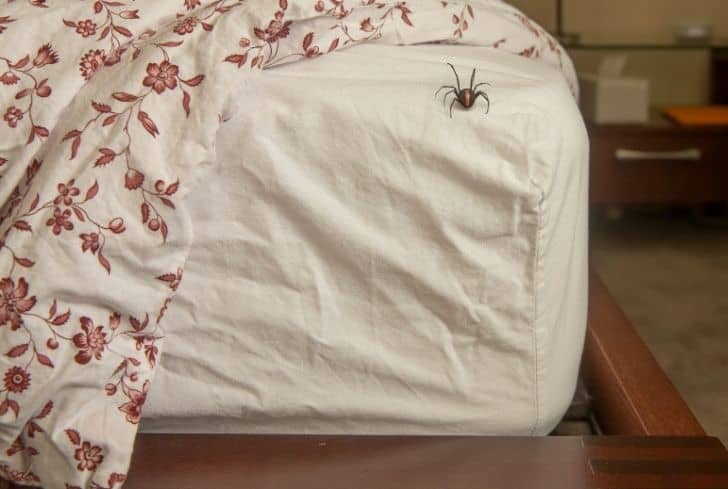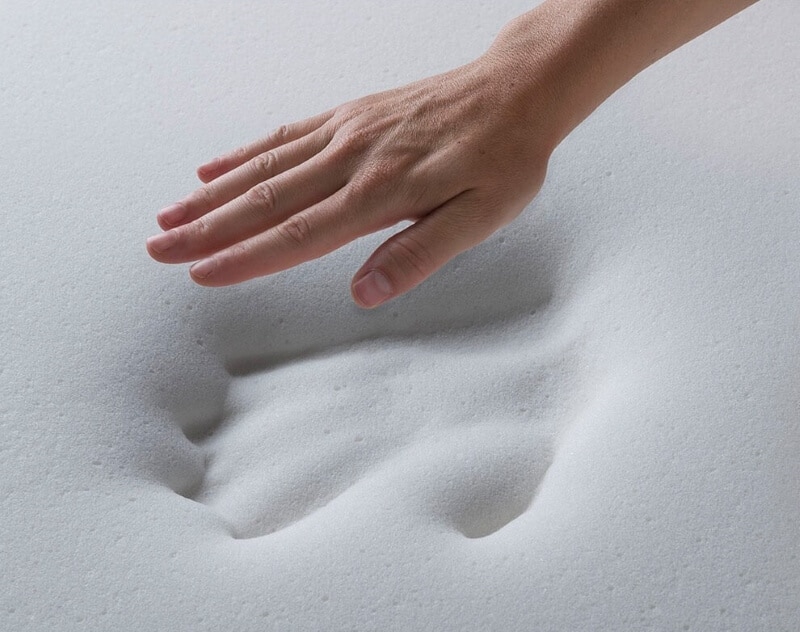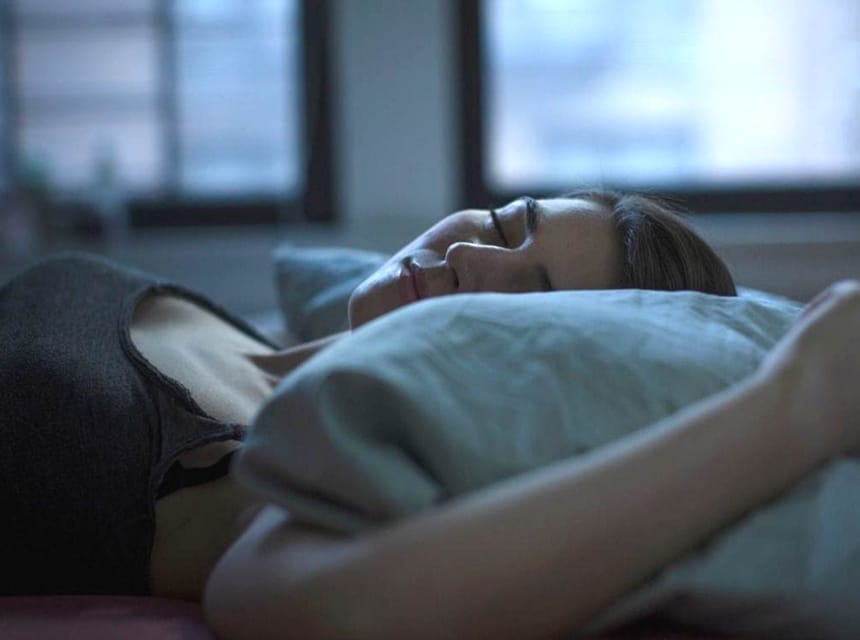

Have you ever wished you could sleep through a boring lecture with your eyes still wide open so you’re not caught out in the act? It’s possible to take a nap with open eyes but it’s not recommended by sleep experts. However, if you really need to do it at the next tedious meeting, you can learn how to sleep with your eyes open.
When else can people sleep with their eyes open? It’s not only bored people who sleep with open eyes so they can snooze through the next meeting or lecture. Underlying medical conditions is often another reason why people are sleeping with eyes open.
For many health reasons, which we’ll discuss here, it’s not advisable to get into the habit of sleeping with open eyes. But, we’ll share some steps to learn how to sleep with your eyes wide open. We’ll also talk about some of the medical conditions that prevent you from sleeping with closed eyes.
When is it normal to sleep with your eyes open? Most times it’s not normal and yet up to 20% of people Trusted Source Sleeping with Eyes Open: Nocturnal Lagophthalmos Causes, Symptoms, & Treatment Sleeping with your eyes open is most likely a sign of a health problem. See what causes Nocturnal Lagophthalmos, symptoms, risks, & treatments. www.webmd.com do it, often without even knowing they’re doing it. This is known as nocturnal lagophthalmos and we’ll be talking about this condition in more detail later.
While many people have underlying health issues preventing their eyes from closing during sleep time, others train themselves to sleep with their eyes open. Sleeping with your eyes open may sound like a magical trick to pull out whenever times get boring. But, you do need to be aware of the dangers of doing this too often.
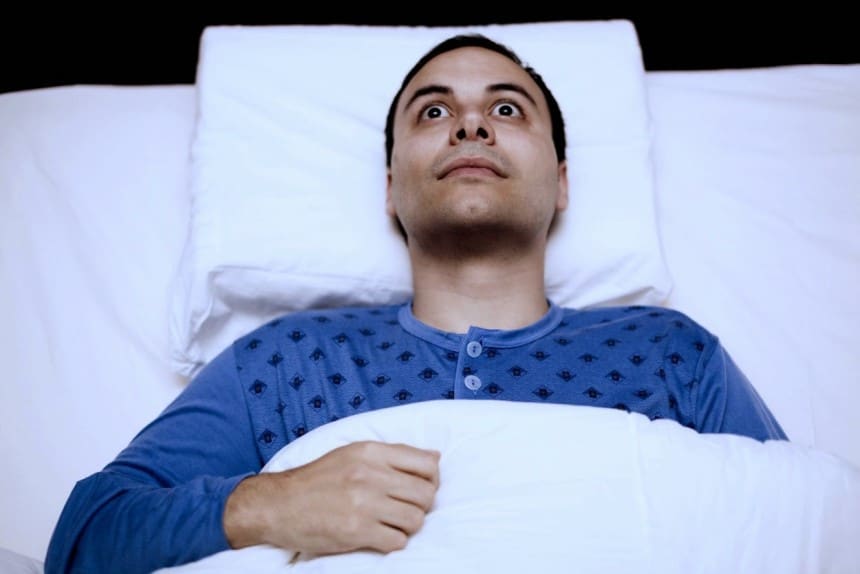
The other danger of sleeping with your eyes open is the decrease in the production of melatonin Trusted Source Melatonin Sleep Aid Supplement: Effectiveness, Dosage, & Side Effects You’ve heard melatonin might be able to help you sleep at night. What is melatonin, and can it really help your insomnia? www.webmd.com . This hormone is essential for inducing a good night’s sleep. Melatonin is produced during night time, when it’s dark. If your eyelids are not closing during sleep time, the production of this hormone will be hampered.
When you sleep with your eyes open, you’ll end up experiencing some other problems such as:
The occasional nap with your eyes open may not be dangerous. But, if you find you’re sleeping without your eyelids shutting properly, seek out medical advice.

Location is essential. Always try and find a spot in the room where you’re not too noticeable by other people. This could be the back row of the classroom or in the corner of the room during a meeting. It’s essential to not have anyone watching you as you perform the following steps.
Start by relaxing your body. With your eyes open, begin to relax your whole body. Focus your attention on every muscle group throughout your body and allow them to relax. Start with your feet, going up your legs and eventually reaching your neck and head. At each point, imagine all the muscles releasing any stress and being soothed.
Now bring your attention to your breaths. Calm down further by focusing on your breathing. Take deep breaths from your stomach, inhaling and exhaling through your nose. Allow for one-second intervals between each breath. By doing this, you’re getting the full benefit of deep breathing. Avoid shallow or rapid breathing as this will not relax your body.
Start focusing your eyes. Keeping your eyes open, focus them on an object in the room. This object must be stationary. Keep your eyes on this object while you’re relaxing both your body and taking deep breaths. Don’t stare at a light or the sun outdoors as this will diminish your ability to concentrate while relaxing your body.
Begin to daydream. Thoughts will come and go in your mind and by letting them go, you won’t get distracted by them. To help you manage the flood of thoughts and even images coming into your mind, start to daydream about a recent holiday or your favorite activity.
Let yourself go to sleep. At this stage, your body will be completely relaxed and your mind will be calm and clear of distracting thoughts. You’re daydreaming about pleasant activities while still staring at the object ahead. By all accounts, your body is now in a sleep state and no-one will even know you’re sleeping.
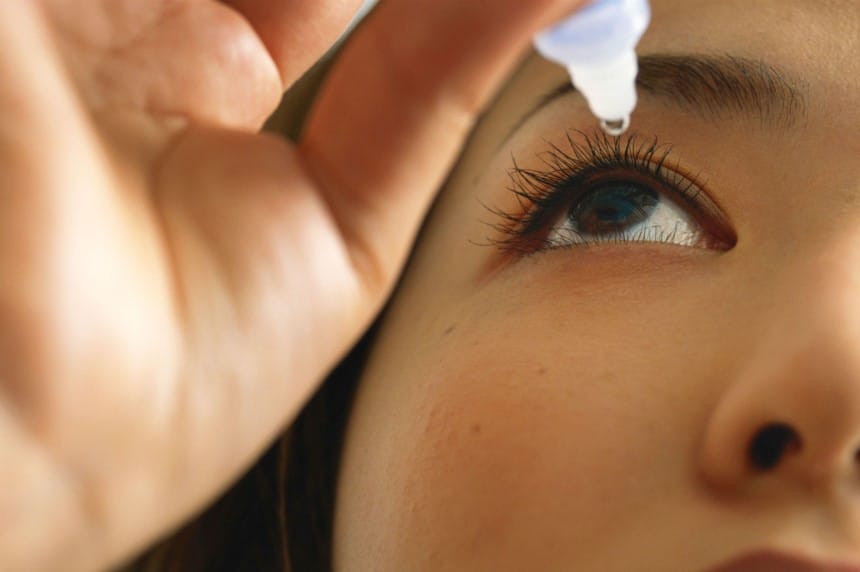
Eye lubricants can be applied during the day and at nighttime. They contain ingredients to bring your eyes some relief by keeping them moist and hydrated. You can use either drops or an ointment formula as eye lubricants.
However, if sleeping with open eyes is caused by other conditions, you can consider the following treatment options to minimize the side-effects:
When trying to get a good night’s sleep even when battling with eyes that won’t shut, you could consider using some of the best orthopedic pillows on the market. They’re designed to minimize any discomfort or pain when lying down.
Reviews on the EPABO Contour Memory Foam Pillow ergonomic design talk about giving you a therapeutic and good night’s rest. You could also use a luxurious pillow such as the Layla Kapok Pillow to soothe you to sleep with its soft and airy features.
Another option for comfortable sleep is reviewing the parameters of the best memory foam mattresses available. These could include gel-infusing memory foam, cooling features and the thickness of the mattress for extra comfort.
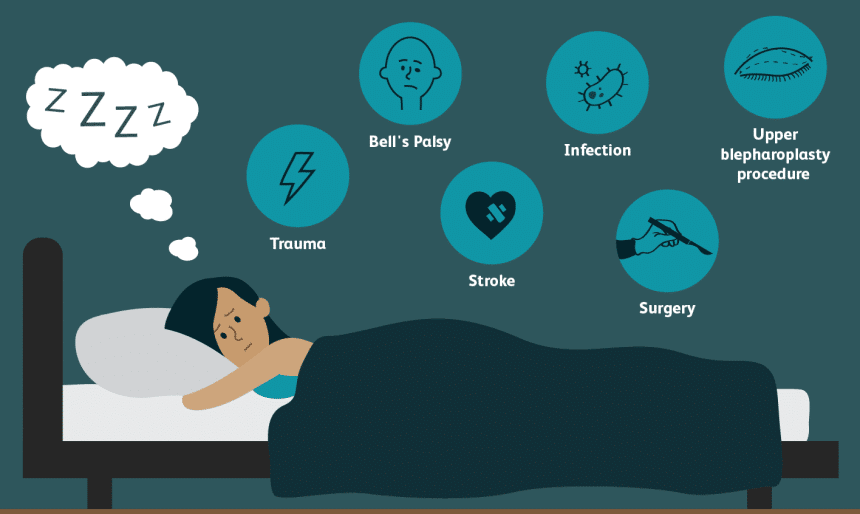
If you’re one of these people who can’t get a decent night’s sleep because of eyes not closing, a medical condition could be the reason. Certain neurological or physical issues are known to cause open-eyed sleeping. If you suspect this is your problem, speak to your medical professional.
Injury to facial nerves close to your eyes can result from cosmetic surgery or accidents. Damage to facial nerves can stop your eyelids from moving up and down properly. Surgery to correct ptosis Trusted Source What Is Ptosis? - American Academy of Ophthalmology Ptosis is when the upper eyelid droops, sometimes restricting or blocking vision. www.aao.org may also be the reason your eyes don’t shut when you want to sleep.
If you’re sleeping with eyes partially open, you may be suffering from nocturnal lagophthalmos. This condition happens to both adults and babies and is caused by a range of different problems. These include Grave’s Disease, Bell’s Palsy and damage to your facial nerves. Some people are born with this condition.
Some autoimmune diseases can affect your facial and eyelid muscles. Guillain-Barre Syndrome is one such condition and sufferers of this condition complain about not being able to sleep with their eyes shut.
Bell’s palsy is often caused by a reaction to a viral infection. It’s a temporary condition which can lead to paralysis or weakness of the facial muscles including the eyelids. Facial paralysis normally only lasts for about six months and treatment can include physical therapy or medications.
Strokes are another reason many people can’t sleep with their eyes closed. During a stroke, certain facial nerves and muscles are affected. These could include the eyelid muscles and nerves, resulting in them not functioning properly.
Eyelid surgery can result in temporary open-eyed sleeping. Swelling is a common side-effect post-surgery and you may battle to close your eyes fully when sleeping. However, if there’s damage to the eyelid muscle because of surgery, you’ll need to speak to your eye specialist.
A rare congenital condition known as Moebius syndrome Trusted Source Möbius syndrome - Wikipedia Möbius syndrome is a rare congenital neurological disorder which is characterized by facial paralysis and the inability to move the eyes from side to side. en.wikipedia.org may be the reason you’re not closing your eyes while sleeping. It’s present at birth and is caused by the lack of proper development of the facial nerves. These nerves are responsible for eyelid movement and facial expressions.
If you have a tumor close to the facial nerves it could be preventing your eyelids from shutting and opening properly. Surgery to remove tumors such as the benign acoustic neuroma may also damage some of the facial nerves responsible for eyelid movement.
Sleeping with your eyes open can be very useful when you want to escape from dreary lessons in the classroom or long, drawn out meetings. However, this habit is not recommended if you want to preserve your eye health. Certain medical conditions are also the reason why some people can sleep with their eyes open.
You can learn how to sleep with your eyes open and it’s essential to treat them with lubricants to keep them moist and hydrated. Treatment is also available for people who don’t choose to sleep with open eyes but have underlying medical conditions.
Whatever the reason for sleeping with open eyes, make sure you practice good eye health so you don’t battle with other health challenges. A good night’s sleep is crucial for overall wellbeing so make sure you do it with your eyes closed.

